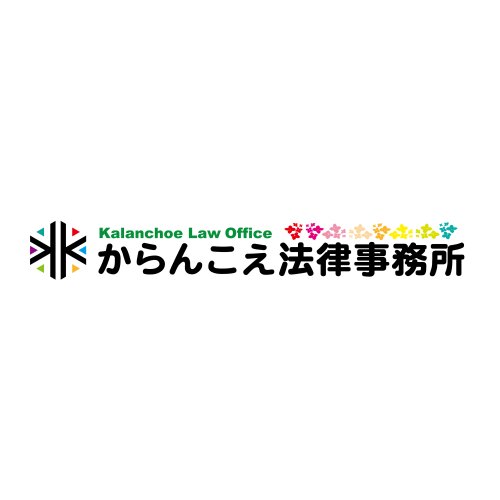Best Child Custody Lawyers in Sendai
Share your needs with us, get contacted by law firms.
Free. Takes 2 min.
Free Guide to Hiring a Family Lawyer
List of the best lawyers in Sendai, Japan
About Child Custody Law in Sendai, Japan
Child custody in Sendai, Japan is governed by national laws, mainly the Japanese Civil Code, with local Family Courts (including Sendai Family Court) handling custody matters. After a divorce or separation, decisions are made about which parent will have parental authority and custody of children. Typically, Japanese law recognizes only one parent as the custodian, although both parents are expected to focus on the child's best interests. Issues of physical custody, visitation, and child support can sometimes be complex, especially in international cases or if parents are unable to come to an agreement.
Why You May Need a Lawyer
Legal representation in child custody cases in Sendai can be vital for several reasons. Many people seek a lawyer when:
- They are going through a divorce and need to decide who will have custody of the child.
- There is a disagreement over visitation rights or parenting time arrangements.
- One parent wishes to relocate with the child, especially to another city or country.
- Allegations of abuse or domestic violence are involved.
- International parental child abduction or conflicts with foreign jurisdictions occur.
- Issues arise relating to child support payments or obligations.
- They wish to modify existing custody arrangements due to changing circumstances.
Local Laws Overview
In Sendai and across Japan, the following key aspects of child custody law typically apply:
- Japanese law generally recognizes only sole custody after divorce. Joint custody is not the norm unless the parties agree to it during marriage.
- Parental authority (shinken) includes decision-making about the child's upbringing, education, and day-to-day care.
- The Family Court, such as the Sendai Family Court, has jurisdiction over child custody disputes.
- The court primarily considers the child's welfare and stability when determining which parent will have custody.
- If parents cannot agree, mediation (chotei) is required before a judge will make a final decision.
- Visitation (mensetsu kankei) is often arranged through mediation, and the frequency is determined based on the child’s best interest.
- International child abduction cases fall under the Hague Convention on the Civil Aspects of International Child Abduction, to which Japan is a party.
- Child support is determined based on both parents’ incomes and the needs of the children.
- Modification of custody or visitation may be requested if significant changes in circumstances occur.
- Unmarried parents may also face unique legal challenges regarding custody and parental rights.
Frequently Asked Questions
What is the difference between custody and parental authority in Japan?
Custody generally refers to the actual care and control of the child, while parental authority includes legal decision-making rights over the child's education, healthcare, and general welfare. Usually, only one parent has parental authority after divorce.
Who decides what happens with child custody if parents divorce in Sendai?
If parents cannot agree on custody arrangements, the Family Court in Sendai will make the decision, prioritizing the best interests of the child.
Can both parents have custody of the child after a divorce?
In Japan, joint custody is generally not granted after divorce. One parent will typically be granted sole custody, although both parents may agree on certain parenting arrangements.
How is visitation arranged?
Visitation rights are commonly arranged during court-mediated sessions. If parents cannot agree, the court will decide based on the child's needs and circumstances.
What factors does the court consider in custody cases?
The Family Court considers factors such as the child's age, relationship with each parent, stability, continuity of care, parental capacity, and the child's own wishes if old enough.
How can a custody order be enforced?
If a parent refuses to comply with a custody or visitation order, the other parent can petition the Family Court for enforcement or seek support from local authorities.
What happens in cases of international or mixed-nationality families?
International custody cases may involve both Japanese law and international treaties like the Hague Convention. Specialized legal advice is highly recommended in such cases.
Can custody arrangements be changed after the court makes a decision?
Yes, custody and visitation arrangements can be modified if there are significant changes in circumstances affecting the child’s welfare.
How is child support calculated?
Child support is typically calculated based on standard tables provided by the court, taking into account both parents' incomes, the child's age, and living costs.
What should I do if my ex-partner tries to take my child abroad without consent?
You should immediately contact the police and seek urgent intervention from the Family Court, especially if there is a risk of international abduction. Japan is a party to the Hague Convention, which provides a legal framework for returning abducted children.
Additional Resources
If you need help or advice on child custody in Sendai, the following resources may be useful:
- Sendai Family Court - Handles custody, visitation, and family disputes within the region.
- Miyagi Prefecture Bar Association - Offers lawyer referrals and legal consultations.
- Japan Legal Support Center (Houterasu) - Provides free or low-cost legal information and support services.
- Child Guidance Center (Jido Sodanjo) - Supports families and children experiencing serious disputes or violence.
- Ministry of Foreign Affairs - For international custody or abduction matters involving foreign nationals.
Next Steps
If you are facing a child custody issue in Sendai:
- Gather all relevant documents, such as family registry records, evidence of parenting involvement, financial information, and communication with the other parent.
- Make a detailed note of your goals regarding custody, visitation, or child support.
- Contact a local lawyer specializing in family law to assess your situation and receive professional advice.
- If immediate action is required, such as in cases involving risk to the child, contact the police or Child Guidance Center right away.
- Prepare for possible mediation at the Family Court, which is a standard first step in Japanese custody disputes.
Lawzana helps you find the best lawyers and law firms in Sendai through a curated and pre-screened list of qualified legal professionals. Our platform offers rankings and detailed profiles of attorneys and law firms, allowing you to compare based on practice areas, including Child Custody, experience, and client feedback.
Each profile includes a description of the firm's areas of practice, client reviews, team members and partners, year of establishment, spoken languages, office locations, contact information, social media presence, and any published articles or resources. Most firms on our platform speak English and are experienced in both local and international legal matters.
Get a quote from top-rated law firms in Sendai, Japan — quickly, securely, and without unnecessary hassle.
Disclaimer:
The information provided on this page is for general informational purposes only and does not constitute legal advice. While we strive to ensure the accuracy and relevance of the content, legal information may change over time, and interpretations of the law can vary. You should always consult with a qualified legal professional for advice specific to your situation.
We disclaim all liability for actions taken or not taken based on the content of this page. If you believe any information is incorrect or outdated, please contact us, and we will review and update it where appropriate.










